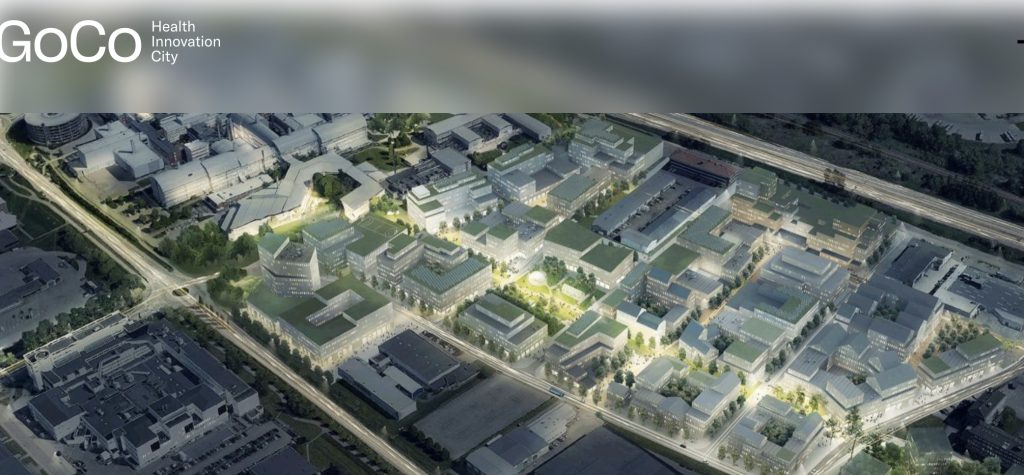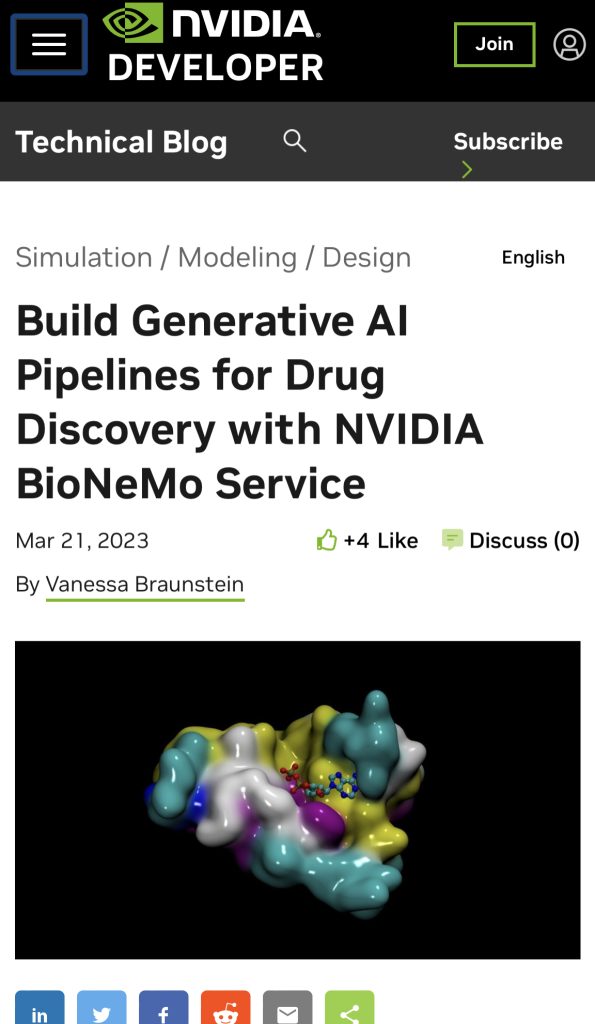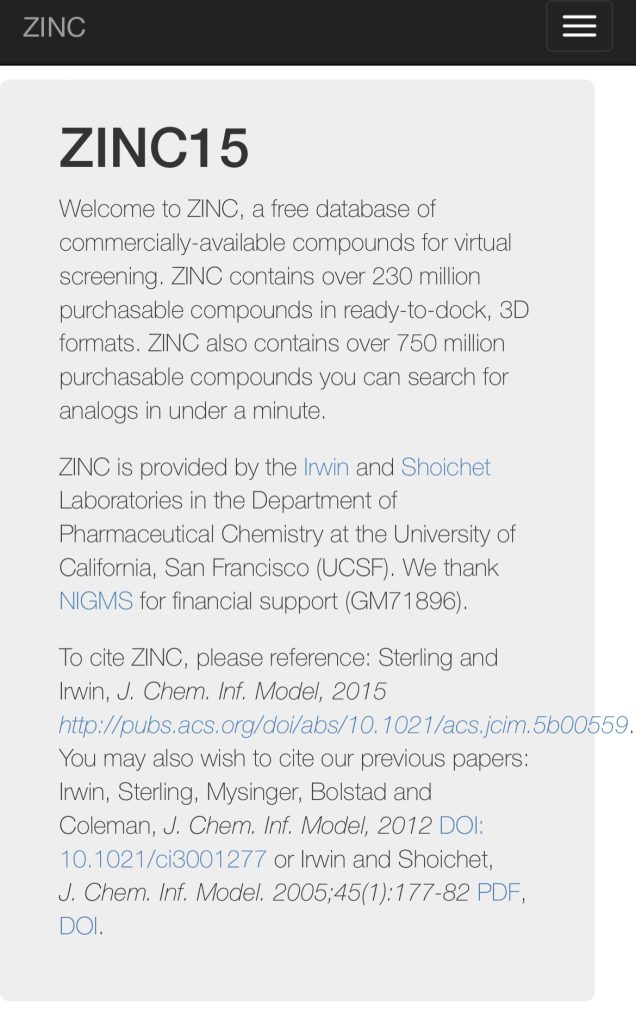
Tag Archives: AI
Generative AI Swedish Industry cluster – Billion SEK investment to speed up the digitization of Swedish industry
Exciting news – A billion SEK investment is being launched within the research and innovation programme Advanced digitalisation which will accelerate the pace and strengthen Sweden’s position in innovation and industrial development.
Read more here: https://www.vinnova.se/en/news/2024/10/billion-dollar-investment-to-speed-up-the-digitization-of-swedish-industry/
Reach out to learn more!
Guest lecture at Lund University – the transformative role of AI and machine learning in drug discovery
The guest lecture at Lund University focused on the transformative role of AI and machine learning in drug discovery, with a particular emphasis on the AlphaFold model. The lecture began by discussing the importance of AI and machine learning in the drug discovery and development process, highlighting how these technologies are revolutionizing the field by enabling more efficient and accurate predictions of molecular structures and interactions.
AlphaFold, an advanced AI model developed by DeepMind. The model’s capabilities were demonstrated, showing how AlphaFold has dramatically improved the accuracy of protein structure predictions, which is crucial for understanding biological processes and developing new drugs. The impact of AlphaFold on accelerating drug discovery was emphasized, as it provides high-quality structural data that can be used to identify potential drug targets and design effective therapies.
The broader implications of AI and machine learning in the pharmaceutical industry were also discussed, including their potential to reduce the time and cost associated with drug development. Examples of successful AI-driven projects were shared, encouraging students to explore the possibilities of these technologies in their future careers.
Overall, the lecture provided valuable insights into the cutting-edge applications of AI and machine learning in drug discovery, inspiring the next generation of researchers and professionals in the field.

DIPS 1000+ Inno Wave, Korea
Presenting at the DIPS 1000+ Inno Wave in Korea. Contributing to the open innovation and collaboration efforts between companies and start-ups.Key points highlighted:
The commitment to open innovation offering access to scientific expertise and world-class infrastructure. Emphasizing the importance of collaboration in driving innovation and addressing the specific needs of the life sciences sector.
Outlining various collaboration types, including joint R&D, adopting solutions, M&A, acquisition of new technology, new product development, talent acquisition, and investments. Discussing the desired technology and collaboration tasks, focusing on areas such as Bio Health, AI and Big Data, and Quantum Technology.
Engaging in discussions with potential partners, exploring opportunities for collaboration and innovation.
Data centers of the future – LLMs for everyone
Data centers of the future – LLMs for everyone – focusing on the advancements and future prospects of data centers, in the context of supporting large language models (LLMs) and making them accessible to a broader audience. The topic explores how data centers are evolving to handle the increasing computational demands of LLMs, which are essential for various AI applications, especially in life sciences.
Key aspects of this topic include:
Infrastructure Enhancements: The need for robust and scalable infrastructure to support the training and deployment of LLMs. This involves advancements in hardware, such as GPUs and TPUs, as well as improvements in data storage and networking capabilities.
Energy Efficiency: Addressing the energy consumption challenges associated with running large-scale data centers. This includes exploring sustainable energy sources and optimizing energy usage to reduce the environmental impact.
Accessibility and Democratization: Making LLMs accessible to a wider range of users and organizations. This involves developing user-friendly interfaces, providing cloud-based solutions, and offering affordable access to powerful AI tools.
Security and Privacy: Ensuring the security and privacy of data processed by LLMs. This includes implementing robust data protection measures and adhering to regulatory requirements to safeguard sensitive information.
Innovation and Collaboration: Encouraging collaboration between industry, academia, and government to drive innovation in data center technologies and AI applications. This involves sharing best practices, conducting joint research, and fostering an ecosystem of innovation.
Overall, the topic highlights the importance of evolving data centers to meet the growing demands of AI technologies and making these advancements accessible to everyone.
Into the Future: Artificial Intelligence in Business Development
Artificial Intelligence in Business Development aiming at empowering business development with generative AI tools.
Prompt Engineering: The importance of prompt engineering in achieving effective results with tools like Copilot.
Confidentiality Assurance: Concerns around confidentiality using AI for sensitive business development tasks. Data governance and the capability to respect privacy settings, ensuring that sensitive information remains secure.
Training and Adoption: The need for developing training programs for business development on effective Generative AI tooling usage.
Overall, leveraging AI technologies to enhance business development efforts, provides valuable insights and practical strategies for integrating AI tools into business processes.
Quantum Computing in Life Sciences
Quantum computing is an emerging technology that promises to revolutionize various industries by solving complex problems that are currently beyond the reach of classical computers. The initiative “Quantum Computing – the future is here, how do we use it?!” explores how we can harness this powerful technology for practical applications.
Quantum computing operates on the principles of quantum mechanics, using quantum bits or qubits, which can represent both 0 and 1 simultaneously through a phenomenon known as superposition. This allows quantum computers to process a vast number of possibilities at once, making them exceptionally powerful for certain types of computations.
One of the key areas where quantum computing is expected to have a significant impact is in drug discovery and development. By simulating molecular interactions at a quantum level, researchers can identify potential drug candidates more quickly and accurately than with classical methods. This could lead to faster development of new medications and treatments.
Another promising application is in materials science. Quantum computers can model the properties of new materials at an atomic level, enabling the design of materials with specific characteristics for use in various industries, from electronics to renewable energy.
Quantum computing also holds potential for optimizing complex systems, such as supply chains and financial portfolios. By analyzing vast amounts of data and exploring numerous scenarios simultaneously, quantum algorithms can identify optimal solutions that would be infeasible for classical computers to compute.
Despite its potential, there are still significant challenges to overcome before quantum computing can be widely adopted. These include developing stable and scalable qubit systems, error correction methods, and practical quantum algorithms. However, ongoing research and investment in this field are rapidly advancing our understanding and capabilities.
In summary, quantum computing is poised to transform various sectors by providing unprecedented computational power. As we continue to develop and refine this technology, it will be crucial to explore and implement practical applications that can harness its full potential for innovation and growth.
If you have any specific questions or need more details on any of these points, feel free to reach out!
How healthcare and AI merge together
In the healthcare sector, generative AI and other AI technologies are poised to bring transformative changes in several key areas:
Personalized Medicine: Generative AI can analyse vast amounts of patient data, including genetic information, to create personalized treatment plans. This approach can lead to more effective therapies tailored to individual patients’ needs.
Drug Discovery and Development: AI technologies can significantly speed up the drug discovery process by predicting how different compounds will interact with biological targets. Generative AI can design new molecules with desired properties, reducing the time and cost associated with bringing new drugs to market
Medical Imaging and Diagnostics: AI can enhance the accuracy of medical imaging by identifying patterns and anomalies that may be missed by human eyes. Generative AI can also create synthetic medical images to train diagnostic models, improving their performance and reliability
Virtual Health Assistants: AI-powered chatbots and virtual assistants can provide patients with instant access to medical information, answer health-related questions, and even assist in managing chronic conditions. These tools can improve patient engagement and reduce the burden on healthcare providers
Operational Efficiency: AI can optimize administrative tasks, such as scheduling, billing, and resource allocation, allowing healthcare professionals to focus more on patient care. Generative AI can also automate the creation of clinical documentation, saving time and reducing errors
Predictive Analytics: AI technologies can analyse historical data to predict future health trends and outcomes. This capability can help healthcare providers anticipate and prevent potential health issues, leading to better patient outcomes and more efficient use of resources
Overall, the integration of generative AI and other AI technologies in healthcare holds the promise of revolutionizing the industry by enhancing patient care, accelerating research and development, and improving operational efficiency.
Trusted Research Environment for Advanced Health AI
Roundtable expert pool Interdisciplinary Expert Pool addressing specific questions and challenges in AI development
A roundtable expert pool, to discuss the results of the Interdisciplinary Expert Pool for NLU project, involving collaboration between humanities and social sciences researchers, civil society representatives, and addressing specific questions and challenges in AI development.
The development of large language models prompts more challenges than purely technological ones. Questions of data, representation, fairness, equality, and ethics are implicit and relevant to all projects and workstream in an interdisciplinary setting.

Talentattraction – Investment opportunities in a Swedish biotech and digital health arena
Initiatives aimed at attracting talent and exploring investment opportunities within the Swedish biotech and digital health sectors is key. Efforts have focused on creating a conducive environment for innovation and collaboration, leveraging Sweden’s strong position in these fields.
A key initiative is Talent Attraction. Attracting top talent and fostering partnerships with health tech companies. Identifying key areas: Medical device technologies, quantum computing, and continuous manufacturing.
Investment opportunities in the Swedish biotech and digital health arena are provided. Our efforts include identifying and promoting investment prospects, facilitating networking opportunities, and supporting the growth of innovative companies in these sectors. By creating a supportive ecosystem, we aim to drive advancements in healthcare and digital health technologies, ultimately contributing to improved patient outcomes and economic growth.

Whats up at SLUSH? The worlds largest gathering of VC
SLUSH 2023 was a vibrant and dynamic event that brought together key stakeholders in the healthcare start-up ecosystem. The event, held in Helsinki, focused on fostering collaboration and innovation to address complex health and healthcare challenges. The partnership between AstraZeneca and SLUSH aimed to create groundbreaking partnerships, drive diversity and inclusion, and encourage the development of purpose-driven companies in the healthcare sector.
Key highlights included the SLUSH 100 Startup Competition, where entrepreneurs had the chance to win a €1 million investment from General Catalyst and Cherry Ventures. The event also featured workshops, mentoring sessions, and networking opportunities, providing a platform for aspiring entrepreneurs to connect with industry leaders and investors.
Overall, SLUSH 2023 was a significant event for the European innovation landscape, emphasizing the importance of collaboration and innovation in driving the future of healthcare.

AI advisory board in regional healthcare
As a member of the AI advisory board in regional healthcare, I play a pivotal role in leveraging AI, big data, and genomics technology to enhance healthcare capabilities. My work involves collaborating with leading healthcare organizations and innovators to improve the standard of care for patients, particularly in areas such as diabetes, heart disease, and cancer.
One of my key contributions is the development of digital platforms that facilitate effective ecosystem collaboration. These platforms enable seamless service delivery and execution of cross-organizational projects, fostering a collaborative environment for growth companies in biotechnology, digital health, and more.
My efforts are also focused on supporting start-ups and innovation centers, providing them with access to world-class infrastructure and expertise. This includes initiatives like the 360° approach in developing and supporting start-ups, as well as the creation of mobile applications for specific healthcare needs.
Overall, my work on the AI advisory board is instrumental in driving innovation and improving healthcare outcomes in the region. By bringing together relevant stakeholders and leveraging advanced technologies, I help reimagine the healthcare ecosystem and deliver valuable benefits to patients.
Board membership and steering of investments in a digital healthcare business evolvement
Board membership and steering of investments play a crucial role in the evolution of digital healthcare businesses. The board members are responsible for providing strategic direction, ensuring effective governance, and overseeing the allocation of resources to various projects. Their expertise and guidance help in making informed decisions that drive innovation and growth in the digital healthcare sector.
In the context of digital healthcare, investments are directed towards the development and implementation of advanced technologies, such as electronic health records (EHRs), telemedicine platforms, and mobile health applications. These investments aim to enhance patient care, improve operational efficiency, and ensure data security and privacy. The board’s role in steering these investments involves evaluating potential opportunities, assessing risks, and ensuring that the investments align with the organization’s overall goals and objectives.
Effective board governance and strategic investment decisions are essential for the successful transformation of healthcare services in the digital age. By leveraging their collective expertise, board members can help digital healthcare businesses navigate the complexities of the industry and achieve sustainable growth.
Healthcare data and quality management for the future of healthcare
The future of healthcare is poised for a transformative shift, driven by advancements in healthcare data and quality management. As we move forward, the integration of digital therapeutics (DTx) and artificial intelligence (AI) will play a pivotal role in enhancing patient-centric care. DTx, which leverages AI, extended reality, and cloud technologies, is set to improve clinical outcomes by providing personalized programs to patients anytime and anywhere. This approach is already making significant strides in addressing unmet needs in areas such as mental health and oncology.
Moreover, the implementation of robust data management practices is crucial for ensuring the quality and reliability of healthcare data. The new Study Delivery Optimization Model, for instance, emphasizes the importance of data quality managers who provide technical expertise and oversee vendor activities from study inception to database lock. This model has demonstrated its value by streamlining data management activities and enhancing the overall quality of clinical studies.
In addition, the convergence of healthcare with technology, data, and analytics is set to revolutionize the industry. Digital health initiatives,, aim to transform healthcare outcomes by leveraging longitudinal and multimodal global data. These initiatives focus on enhancing patient and healthcare experiences, augmenting outcomes through earlier diagnosis and patient solutions, and reimagining healthcare through end-to-end digital care pathways.
As we look to the future, the collaboration between various stakeholders, including industry, academia, and healthcare providers, will be essential. Establishing the right platforms for data sharing and developing sustainable business models will drive innovation and improve disease prevention efforts both locally and globally. By prioritizing quality data and embracing technological advancements, the healthcare industry can ensure better patient outcomes and a more efficient healthcare system.
Due Diligence capabilities and development in AI in an M&A setting
Due diligence is a critical process in mergers and acquisitions (M&A), ensuring that all aspects of a potential deal are thoroughly examined before finalizing the transaction. The integration of artificial intelligence (AI) into due diligence processes has significantly enhanced the capabilities and efficiency of this crucial phase.
AI-driven due diligence leverages advanced algorithms and machine learning to analyze vast amounts of data quickly and accurately. This technology can identify patterns, anomalies, and potential risks that might be overlooked by human analysts. For instance, AI can automate the review of financial statements, legal documents, and compliance records, reducing the time and effort required for manual analysis12.
Moreover, AI can enhance the accuracy of due diligence by providing deeper insights into the target company’s operations, market position, and potential synergies. It can also help in assessing the cultural fit between the merging entities by analyzing employee sentiment and organizational culture through various data sources3.
The development of AI in due diligence is ongoing, with continuous improvements in natural language processing, predictive analytics, and data visualization. These advancements enable more comprehensive and real-time analysis, allowing M&A teams to make informed decisions with greater confidence45.
In summary, the integration of AI into due diligence processes in an M&A setting offers significant benefits, including increased efficiency, accuracy, and deeper insights. As AI technology continues to evolve, its role in due diligence is expected to become even more pivotal, transforming how M&A transactions are conducted.
AI, new modalities in drug discovery and building a city as the center of excellence



- GoCo Health Innovation City
- NVIDIA
- Dell
- AstraZeneca
- Stoichet Labs ZINC database
- Artificial Intelligence
- Marburg University & in-silico protein drug discovery
- Nobel price winners developing our new tech innovation companies
- PostDoc projects in particle accelerators turning into successful scale-ups
This is the settings being built, continuously and at a speed which is constantly increasing. As we know, the speed of development of our know how will never be as slow as it is right now. Thus, be curious and stay tuned…
